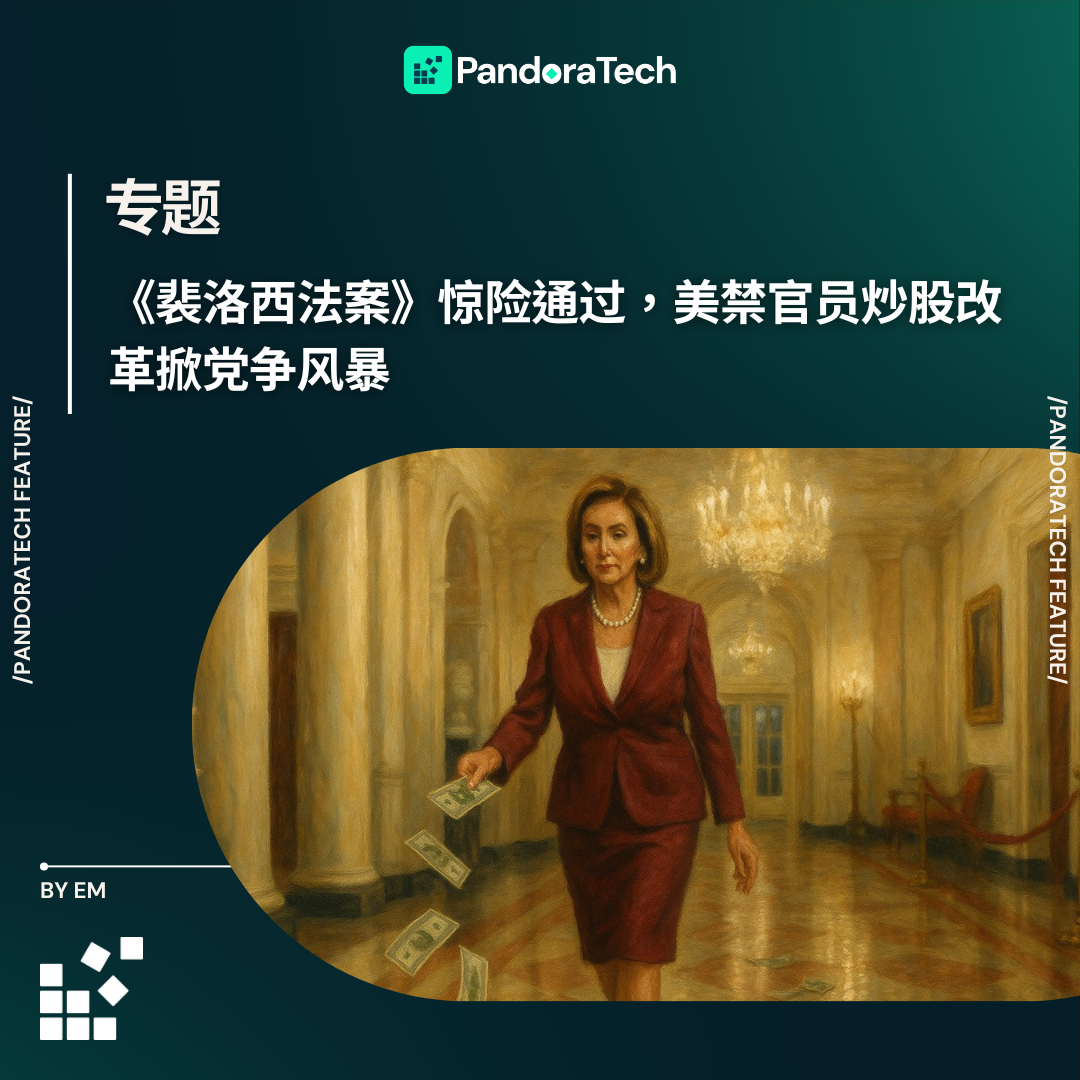The Pelosi Act narrowly passed, sparking a partisan strife over the US ban on stock speculation by officials.
According to PandoraTech News, the U.S. Congress recently passed a controversial stock trading restriction bill, originally named the PELOSI Act (Preventing Elected Leaders from Owning Securities and Investments Act), which aims to prohibit members of Congress, the president and the vice president from trading stocks while in office.
The bill, introduced by Republican Senator Josh Hawley, initially targeted members of Congress and their spouses, specifically singling out senior Democratic Representative Nancy Pelosi, sparking a strong backlash from Democrats. Democrats criticized the bill's exclusion of President Trump and Vice President JD Vance as a "tailor-made exemption for Trump."
To ease party disputes, the bill was adjusted during the review process, including changing its name and expanding its scope of application to future terms of the president and vice president. It was ultimately passed with a narrow margin of 8:7.
White House spokeswoman Karoline Leavitt said the bill was introduced in response to long-standing questions about Pelosi's wealth. She noted, "Pelosi earns only $174,000 a year, yet possesses assets totaling $413 million." She also cited data suggesting her investment return in 2024 would be as high as 70%.
Trump has publicly criticized Pelosi for "getting rich off insider information." In response, Pelosi expressed her full support for the bill and stressed that she has never held shares or been involved in her husband's investments. She called Trump's accusations "projection."
Although this legislation aims to enhance political trust and market transparency, it has also been criticized for losing the original intention of institutional reform under the pressure of party struggles and populism.
🧠 Analysis
While the PELOSI Act is based on transparency and anti-conflict of interest principles, the controversy surrounding its naming and exemptions highlights how institutional reforms are often influenced by power struggles and partisan manipulation. As the election campaign heats up, the "anti-elite, anti-corruption" narrative is becoming a key tool for all sides to win voter trust. The implementation of such legislation will be a litmus test for restoring trust in democratic institutions.
PandoraTech - Opening the Pandora's Box of Blockchain
